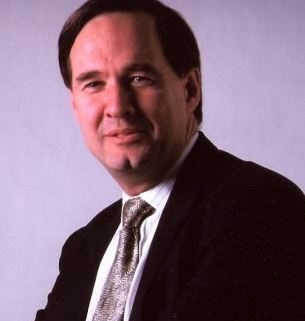I have been relying on David Hale as my de facto global macro economist for decades and I never miss an opportunity to get his updated views. The challenge is in writing down David?s eye popping, out of consensus ideas fast enough, because he spits them out in such a rapid-fire succession.
Since David is an independent economic advisor to many of the world?s governments, largest banks and investment firms, I thought his views would be of riveting interest to you.
I met him this time at the posh Ozumo restaurant on San Francisco?s waterfront, near the Ferry Building. A favorite of Silicon Valley?s tech titans, I bumped into Marc Andreessen on the way in, nearly impaling myself on his pointed head.
I settled for a delicate vegetable tempura and eel sushi, while David, being from the Midwest, dug into an excellent Wagyu beefsteak. We washed it all down with liberal doses of Kirin beer and Takagi Shuzo designer sake.
David is an unmitigated bull on the economy, predicting that growth will leap from 2.0% in 2013 to 3% in 2014. Fading away of the fiscal drag created by a gridlocked congress will be the main reason.
Last year, we were hobbled by the maximum Federal income tax rising from 35% to 39.5% for income over $400,000. Capital gains rose from 15% to 20% as well. These combined to subtract 1% off US GDP growth in 2013. There are no such tax hikes planned for 2014.
The economy continues to power along, supported by three legs: housing, the energy boom and a reviving auto industry. Detroit is expected to pump out over 17 million vehicles this year, a figure only dreamed about six years ago, when it hit a rock bottom 9 million unit annual rate.
Management has a death grip on controlling costs, which is why they aren?t hiring, and explains the feeble employment statistics. This has enabled profit margins to surge to all time highs. Expect more of the same.
Europe should grow by 1% in 2014 after delivering a near zero rate this year. It will take years for them to return to any kind of normalized growth rate. That said, continental stock markets could well outperform those in the US in the near term.
David spends much of his time traveling, doing a major intercontinental trip almost every month. The coming calendar includes Japan, Australia, and Europe by yearend. To have his frequent flier points!
Two years ago, David was banging his drum about an imminent recovery in Japan (EWJ) and a collapse in the yen (FXY), (YCS). He was ignored by virtually all, except by me. As you may recall, I started laying on major short positions in the yen about then at David?s behest, which proved wildly successful.
The proof is in the constant testimonials that I regularly publish in my letter. I don?t make these up and they come in almost every day.
David believes that Prime Minister Shinzo Abe is doing all the right things, so the recovery is real, sustainable and will play out over several more years. However, he would have been wise to spread out the VAT tax rise that took place in April, from 5% to 8%, over five years instead of bunching it all up in one.
He also should spend less time focusing on domestic nationalistic issues, which have the undesirable effect in that it focuses China on Japan?s regrettable past, not its bright future.
He is also quite an authority on emerging markets (EEM), which account for 40% of global GDP, and sees the recent collapse as presenting a once in a generation buying opportunity.
His favorite is Mexico (EWW), which will benefit hugely from the first new round of political and economic reforms in 20 years. The new oil and gas fracking technology has also arrived just in the nick of time, as its existing conventional fields are approaching exhaustion.
David thinks Greece (GREK) has more to run, although not at the heady pace of the past year. Nigeria (NGE) is another outstanding opportunity, where he recently visited. A privatization wave there could boost GDP growth from 7% to 10%.
To show you how wide David casts his net, he had lunch with none other than Syria?s Bashar al-Assad a decade ago. The country was then enacting a series of ground-breaking liberalizations by privatizing banks, and was viewed as the hot frontier market of the day. How things change!
This is why investors expect outsized returns from these countries. Less, and the risk is not worth it. They?re called ?frontier? for a reason.
David has in the past made some far out predictions that were real zingers. Population growth is grinding to a halt throughout Asia. It is already well below the replacement rate in Japan and South Korea, which will soon be joined by China.
This will eventually lead to labor shortages in Asia, and bring to an end the cheap labor regime, which has driven their economies for the past 100 years. The Chinese work force will shrink from five times ours to only three times.
Their cost advantage then goes out the window. The upshot for us is that perhaps half of the 6 million jobs that America lost to China over the last 20 years will come back. Many items can now be bought cheaper in Chicago than they can in Shanghai.
This explains why ?onshoring? is accelerating with a turbocharger (click here for ?The American Onshoring Trend is Accelerating?).
China will still become far and away the world?s largest economy in our lifetimes. In 1700, Asia accounted for 58% of world GDP. Some 250 years of wars pulled that figure down to 15% by 1950. It is on track to recover to 50% by 2050.
To learn more about David Hale and the extensive list of services he offers; please visit the website of David Hale Global Economics at http://www.davidhaleweb.com.










